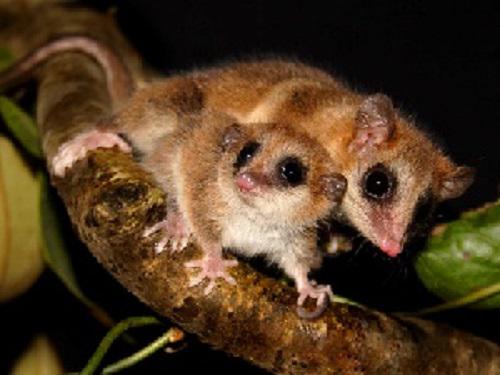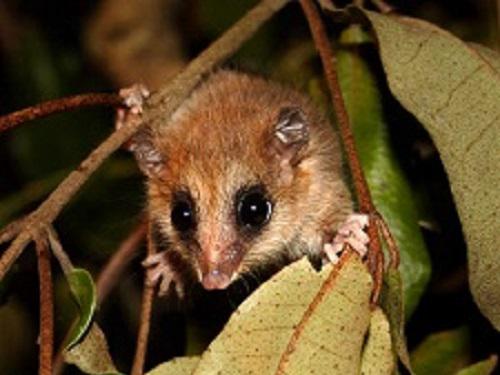Lida Marcela Franco Pérez
Other projects
26 Mar 2008
Ecology, Behavior and Conservation of the Endangered Arboreal Marsupial Small Dromiciops gliroides “Monito de Monte”
The aim of the project is to determine the consequences of habitat fragmentation on behavioural aspects and ecological aspects (genetic flow, dispersal ability and genetic differentiation) of populations of D. gliroides.
Dispersal is a key life-history trait that influences the abundance, dynamics and the persistence of populations and from an evolutionary perspective establishes the level of gene flow and effective population size.

Dromiciops mother and pup.
This is particularly relevant for species inhabiting fragmented habitat because successful movement between isolated patches of suitable habitat can be strongly influenced by the landscape structure. The degradation of the temperate rainforest of southern Chile every time is higher, and the studies of keys components response of this ecosystem are necessary elements to propose efficient conservation strategies.

Dromiciops in olivillo tree.
This ecosystem has been catalogued as “hot spot” of biodiversity, which refuge species as Dromiciops gliroides “monito de monte”, considered a living fossil and the unique representative of an order ancient (MICROBIOTHERIA) within the mammals of world. The anthropogenic degradation of these ecosystems every time is higher, and the studies of how respond keys components of this ecosystem are required for propose conservation strategies in these highly fragmented landscape.
Based in this fact, the principal aims of this project are: 1. To determine the fragmentation effect on dispersal and genetic differentiation of D. gliroides populations, 2. To establish kinship relations within of nesting groups and, 3. To establish possible evolutionary significant unit. Finally, with this information we will implement educational and thrusting initiatives about of the protection biodiversity of these ecosystems.